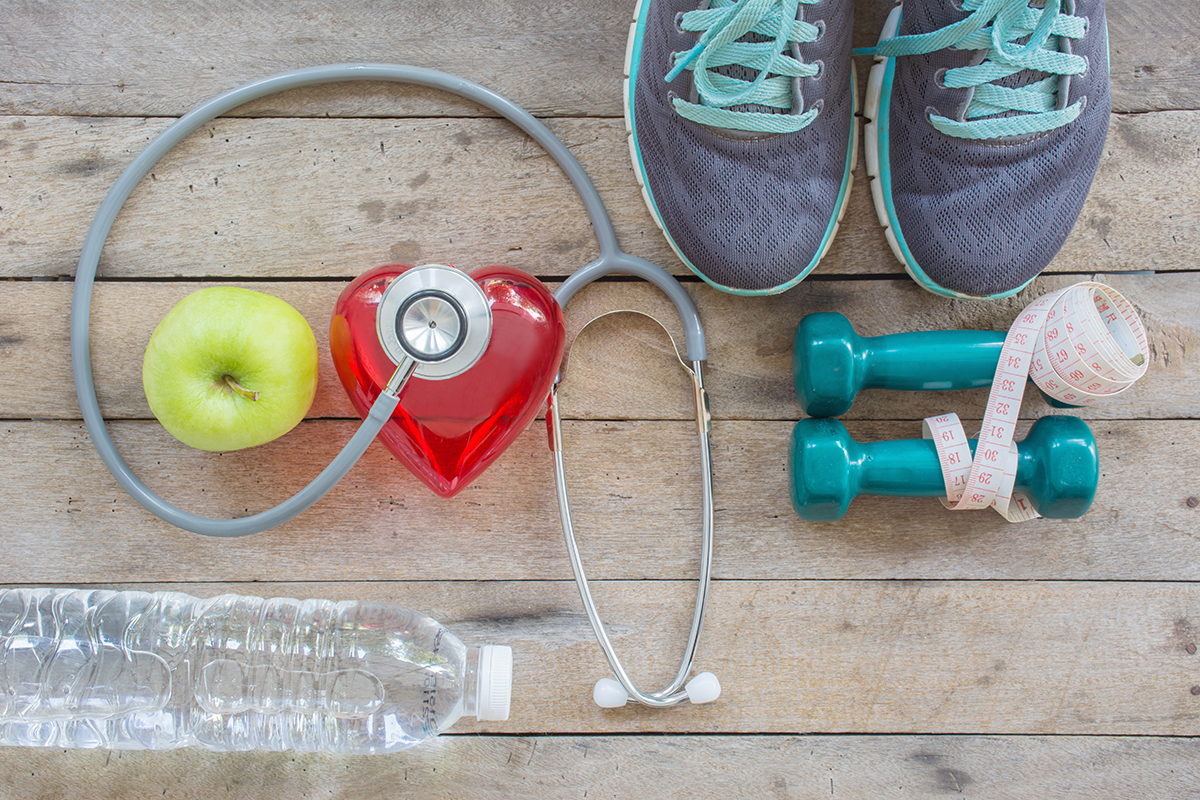Importance of taking care of heart health
Your heart beats about 2.5 billion times over your lifetime, pumpinging millions of gallons of blood to and from your entire body. Blood carries essential oxygen and nutrients and removes waste products. Your heart is a “vital organ,” meaning that if it stops, all essential functions in the body stop, some instantly.
The heart never gets a break, even working while you sleep, making it quite a marvel. However, without proper care, hearts can fail. Heart disease is the number one cause of death in the United States, with someone suffering a heart attack every 40 seconds, according to the Centers for Disease Control and Prevention. That adds up to 805,000 people per year suffering a heart attack.
The main problem is atherosclerosis, which is when “plaques” of cholesterol build up in the artery walls, narrowing the passage for blood flow. These plaques can break off and clog an artery, causing the blood flow to stop and a heart attack or stroke can follow.
A healthy lifestyle, especially started as young an age as possible, makes a huge difference in preventing cardiovascular disease. Lifestyle changes and medications can help repair and prevent heart damage, such as controlling high blood pressure or high cholesterol.
8 of things to do everyday to manage your heart health
- Eat a heart healthy diet. A diet rich in fiber from vegetables, fruits, fish, lean meats and hearty whole grains is the best fuel to keep your heart pumping the way it should. Avoid trans fats, saturated fats, and limit red meat and added sugars.
- Control cholesterol. Cholesterol levels are affected by many factors, including heredity (is there a family history of high cholesterol, hypercholesterolemia or hyperlipidemia?)
- Get enough sleep. Sleep is an essential part of keeping your heart healthy. If you don’t sleep enough, you may be at a higher risk for cardiovascular disease no matter your age or other health habits. Everyone has different sleep needs based on their body and other lifestyle factors, but 7 full hours give or take is a great goal. If you are constantly tired during the day or find yourself taking lots of naps, you are likely not getting enough sleep. Try to wake up at the same time each day and go to bed at the same time and establish a bedtime routine. Routines at night trigger your body to prepare for sleep and will help you fall asleep faster.
- Exercise regularly. Exercise doesn’t mean you have to sweat it out at the gym for an hour or more at the gym each day (though go for it if you like it!). Exercise means being physically active. Your job may be keeping you physically active all day; or, you may be sitting at a desk all day. Whatever your situation, aim for 30 minutes per day, five days per week of heart pumping exercises (or 150 total minutes per week). This can be broken up in chunks. If you sit all day at your job, get up once an hour and do 10 squats. Take three 10-minute breaks and get active – vacuum the house, take a short walk, play with your dog. Even active hobbies are great exercise, like gardening or hiking, cycling, running, tennis and more. Get your physical activity your way – just be sure you make an effort each day to be active.
- Keep a healthy blood pressure. A healthy blood press is ideally under 120/80. Following a healthy diet, losing excess weight, and regular exercise are the best ways to decrease high blood pressure and maintain healthy blood pressure. High blood pressure, especially in combination with other factors like smoking and high cholesterol are risk factors for heart disease.
- Quit smoking and avoid secondhand smoke. Smoking is one of the worst habits for your heart health. Secondhand smoke can cause illness in those around you, too, including breathing problems. There are now many helpful smoking cessation programs available to help you quit. You don’t have to do it alone. Talk with your doctor about how you can quit.
- Reduce alcohol consumption. The body has no nutritional need for alcohol and too much can cause a variety of health issues. Women should have no more than one drink per day and men no more than two.
- Manage daily stress. Stress management may be one of the hardest heart healthy guidelines to follow because not all stress causing factors are in your control. While you can’t eliminate all stress, you can manage how you react to stress. Mindfulness and meditation are two great ways to calm your body and mind, and they have the added benefit of slowing your heart rate and lowering blood pressure. There are lots of apps you can use, books, blogs and more. Also, again, getting proper sleep will help reduce stress, though stress can exacerbate sleep problems, so watch for signs that stress may be interfering with your sleep. Exercise releases endorphins, which make you feel good and relieve stress. If you are unable to adequately manage your stress, you should talk to your doctor.
Jai Medical Systems has the support and tools you need to stay healthy. Call our Customer Service Representatives at 1-888-JAI-1999 to learn more.
 Did you know that your IE browser is outdated?
Did you know that your IE browser is outdated?






